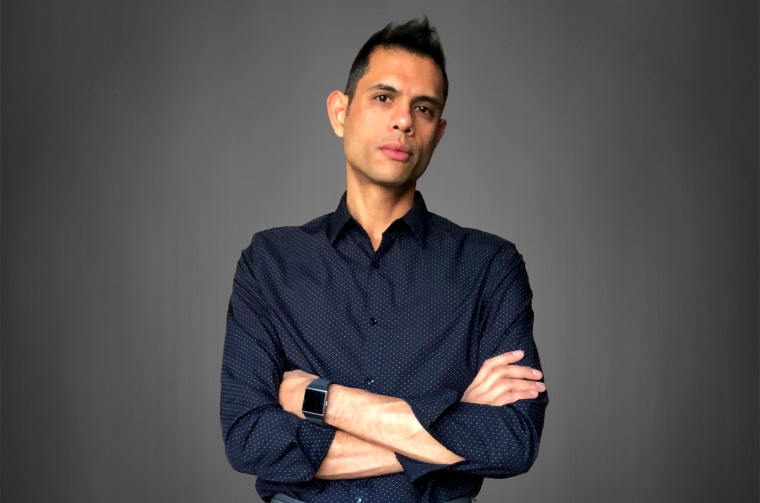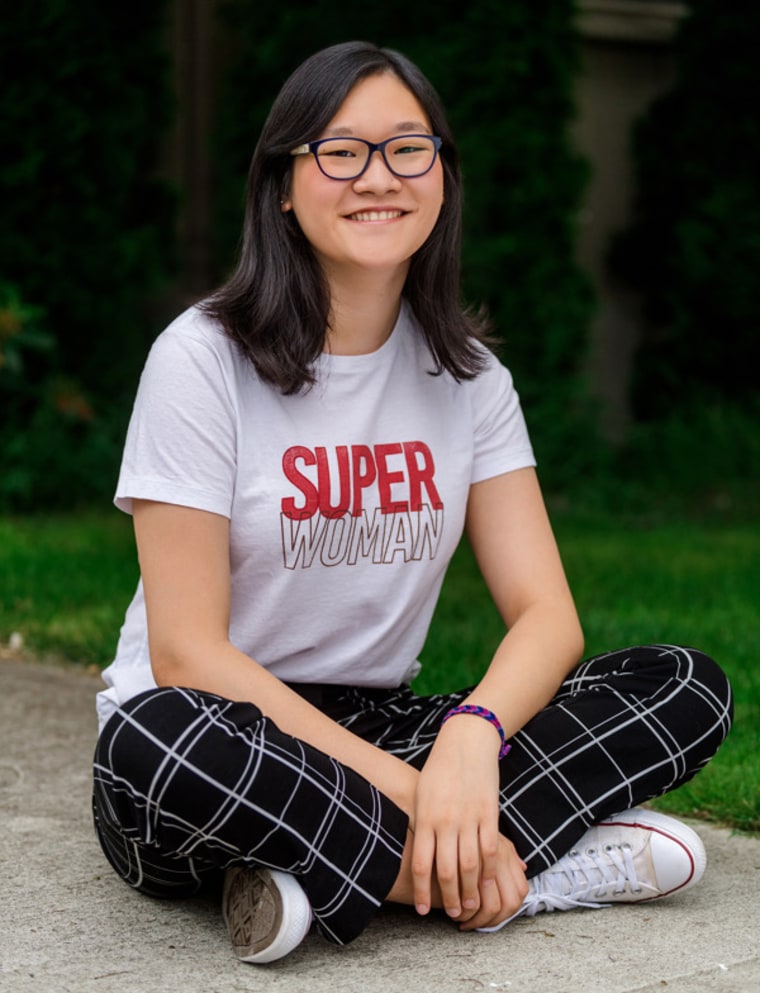Filipino American Who Had Strict Religious Upbringing Launches Queer Youth of Faith Day
When Jun Young came out at the age of 45, he thought back to his childhood.
He was raised in a Catholic household in the Philippines, where he was taught early on that being gay was against God’s will. So when he realized around the age of 12 that he was attracted to other boys, he kept it locked away for more than three decades.
“I felt like I didn’t really have a choice,” Young told NBC Asian America. “I couldn’t really come out or accept that I was gay or even explore what that meant without giving up my faith. And my faith was so important to me and continues to be important to me.”

Today, he sees that many LGBTQ Christian youth in the U.S. still feel reluctant to come out because of their faith — and that there are few resources to help them.
“That’s when I decided I want to help my younger self,” said Young, 47, who is based in Seattle. “What would I have wanted growing up as a teenager?”
Young this year launched Beloved Arise, a Christian group that celebrates and empowers LGBTQ youth of faith. Through online events, regular meetings, publications and social media, Beloved Arise encourages youth to be proud of being LGBTQ and to see themselves as part of “God’s creation” and worthy of celebration, the organization says.
To mark Pride Month, the group is hosting a Queer Youth of Faith Day on Tuesday to celebrate LGBTQ youth from all faiths. Along with several cosponsors, Beloved Arise will use the event to affirm youth and let them know they are loved for exactly who they are, Young said. There will also be a virtual gathering for queer youth to share their stories and to announce the winners of an essay contest held this year.
Young said he hopes the event will allow people to initiate conversations about LGBTQ acceptance with their faith communities.
Download the NBC News app for breaking news and alerts
Research from a cosponsor of the event, The Trevor Project, an LGBTQ crisis intervention and suicide prevention organization, found that 1 in 4 LGBTQ+ youth report that religion is important or very important to them. But those who hear their parents’ using religion to say negative things about being LGBTQ face a higher risk of attempting suicide.
LGBTQ youth who have at least one accepting adult in their lives are40 percent less likely to attempt suicide.
“In some cases, that affirming adult can be a faith leader, whether that’s somebody who’s in their church, a minister, imam, rabbi,” said Casey Pick, senior fellow for advocacy and government affairs at The Trevor Project. “Having places that are explicitly LGBTQ-plus-affirming goes a long way toward healing some of the deep wounds that too many LGBTQ-plus people have associated with religion and faith.”
Maliha Khan, director of the Washington, D.C., chapter of Muslims for Progressive Values, another cosponsor, said LGBTQ people are a big part of the community her group serves, and she welcomed the opportunity to collaborate.
“We’ve seen a lot of people of faith move away from traditional spaces of worship, and oftentimes that’s because their values don’t align with what’s being taught at those spaces,” she said.
When Young decided to come out about a year and a half ago, he was a father of two children and had ended a 20-year marriage to a woman a few years earlier. While his family was accepting, he was soon removed as board president at a Christian nonprofit organization.
Young, who is now Protestant Christian, credits his decision to come out to LGBTQ-affirming theology, which he had spent some time exploring a few years ago.
Recommended
AFTER GEORGE FLOYDAfter George Floyd, raw talk and racial reckoning among U.S. Muslims
U.S. NEWSTarget employee says N.Y. customer demanded she remove Black Lives Matter mask
The Bible is full of discussions of love and justice and standing with the oppressed and the marginalized, but he noted that only a few verses directly address same-sex acts.
“Why would I focus on that if I can lead with Jesus’ command, which is to love each other? It surprises me how we miss that so much,” he said.
When the Supreme Court ruled this month that job discrimination on the basis of sexual orientation or transgender status is illegal, it was a meaningful for Young, who has experienced that type of discrimination.
“It gives me hope that LGBTQ-plus youth will enter workplaces that are safe and inclusive to all people, including sexual minorities,” he said.
Now four months old, Young’s organization has about three dozen LGBTQ youth and allies from Hawaii to Mississippi regularly attend its weekly virtual gatherings. He estimates that 20 percent are Asian Americans and that a third are people of color.
The meetings, which typically run about two hours, offer youth a space to play games, worship and discuss topics like what it means to be LGBTQ as a Christian, said Lucy Roedel, one of the young people involved in the group.

Roedel, 18, said having a community of LGBTQ youth and allies through Beloved Arise has become an important part of her life. Her family had always been supportive of her sexuality since she came out, she said, but she didn’t feel the same way about her faith community.
Roedel, who was raised in a Christian household in Seattle, was an active volunteer at her church until late last year, when, she said, she was required to formally agree to teach that marriage is between one man and one woman.
That led her to make the difficult decision to leave the church she had attended for her entire life, she said.
“It was very hard for me, because I had always supported my senior pastor and really liked him and liked hearing him preach,” she said. “It was earth-shattering to go from listening to him every week to not even going to church, just knowing that the church didn’t agree with who I was at all.”
Although Beloved Arise is a Christian group, Young said he someday hopes to expand it to become a multifaith organization.
“Faith is something that for a lot of people adds value to their life,” he said. “And that should never be taken away just because someone has a point of view that is not compatible with your faith.”